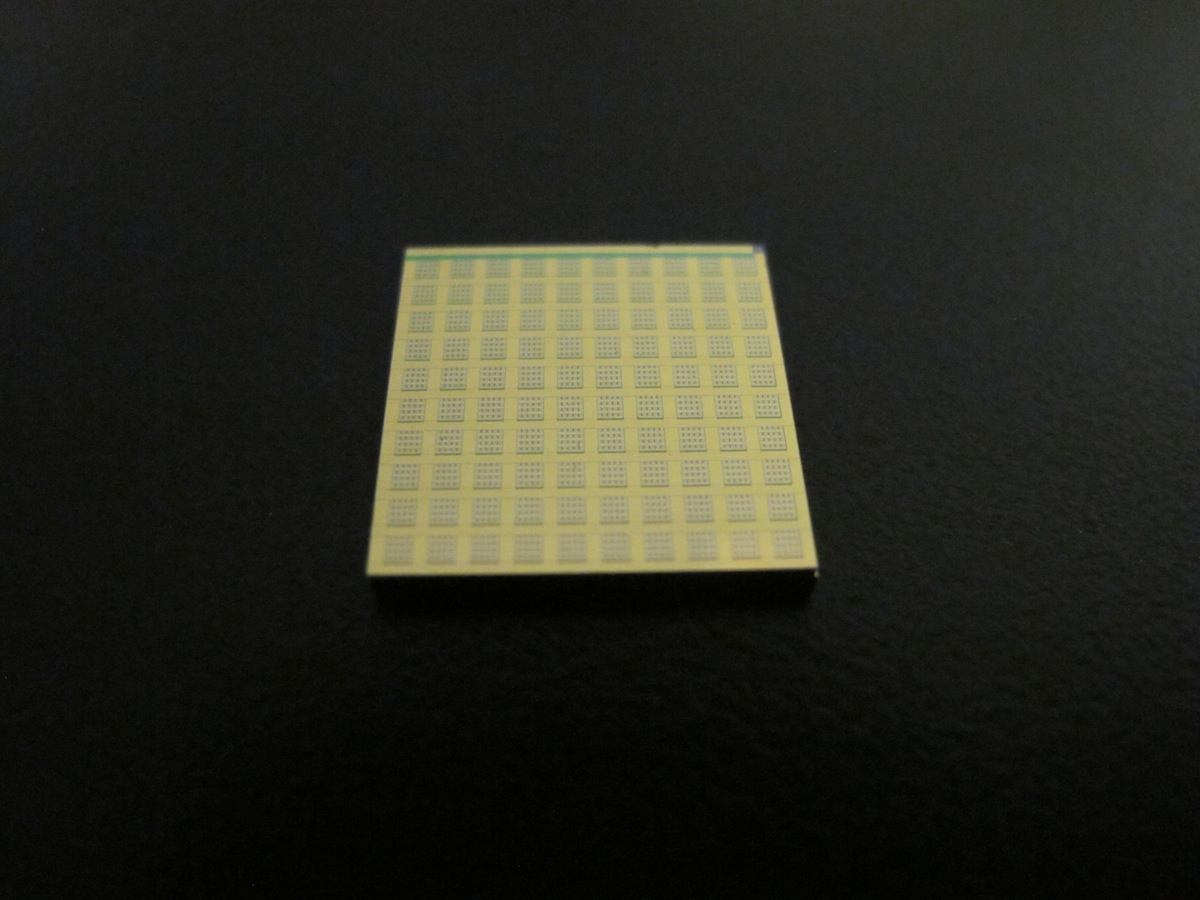A Lexington Company Is Working on a Remote-Controlled Contraceptive Device

Photo Courtesy of MicroCHIPS
The war on women’s contraceptives could soon have a new battle to contend with: on-demand birth control.
Lexington-based MicroCHIPS, a developer of implantable drug delivery devices, has been quietly working on a birth control product that can be embedded in a woman’s body, and release a contraceptive drug into her system with the flip of a switch.
“We are currently in the development stage, and anticipate that will be complete by the end of this year,” said Bob Farra, president of MicroCHIPS, a startup that spun out of an MIT lab run by Robert Langer. “We will initiate pre-clinical testing next year, followed by clinical trials the year after that.”
Each wireless device, which Farra said could last for up to 16 years underneath a patient’s skin, contains “discrete reservoirs,” or wells, that hold doses of the birth-control drug levonorgestrel. Farra told Boston that the implantable chip doles out 30 micrograms of levonorgestrel per day from the reservoirs, and can be turned off at the person’s request if they decide they want to conceive. Levonorgestrel is a commonly used form of contraception, he said.
The devices are roughly 20 by 20 by 7 millimeters in size, and contain the microchip that holds the reservoirs of medicine. The reservoirs are encased by platinum and titanium seals, which dissolve and release the contraceptive when activated remotely.
“When we issue a wireless signal, we can program the microcontroller inside the implant to release a dose at a precise time,” said Farra. “A physician can program it to release medication on a monthly basis for 12 to 24 months, and then a woman doesn’t have to take any action whatsoever. If she decides she wants to change the state of her implant, she can ask them to turn it off.”
Farra said the benefit of the invention is that women wouldn’t have to constantly remind themselves to take a pill everyday. He also said that this implantable device rivals similar products that go underneath the skin because it can be turned on and off remotely, and doesn’t require a second trip to the physician’s office in order to remove it from a person’s body.
“We have heard a lot of positive feedback,” said Farra. “Women are excited about the capability to change the state of an implant without having to go through another procedure to have it removed. They like the long-term medication, and not having to remember to take medication each day.”
When asked by Boston how he thought the product would fare as the discussions surrounding women’s contraceptives continue to intensify, he replied, “it’s difficult to predict, and I’m not going to try to answer that.”
The company said initially—if and when they get approval from the Federal Drug Administration, and the product becomes more commercially available—a physician would have control over the administration of the daily dosage. But Farra said at some point “it would make sense” for the woman to have control of the device as well. Encrypting the devices is also a challenge the company is working on.
Farra said MicroCHIPS has been working on the device for about two years, and the technology was initially licensed from MIT. He said over the years they have continued to refine the technology, and continue to work closely with the founders, who are both MIT professors.
“We are addressing the need and making life easier for women, and giving them the ability to plan their families as they wish,” he said.


